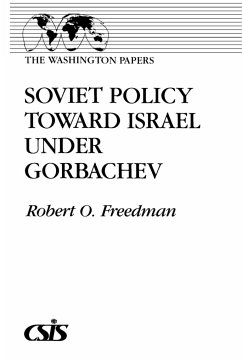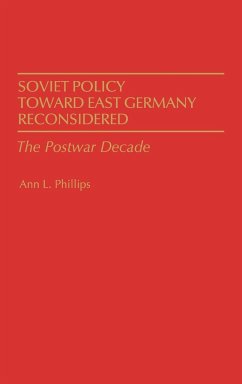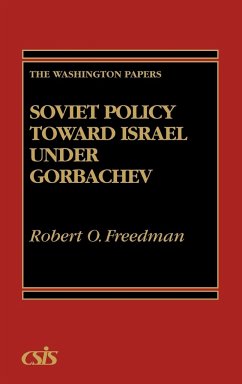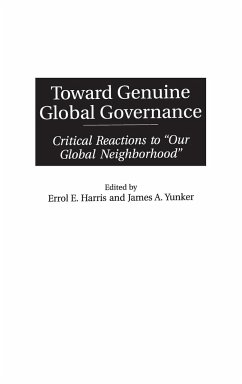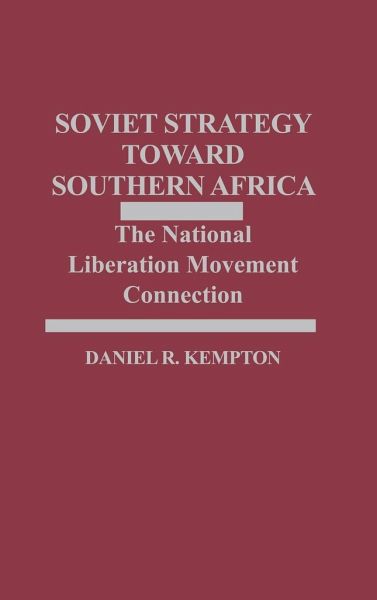
Soviet Strategy Toward Southern Africa
The National Liberation Movement Connection
Versandkostenfrei!
Versandfertig in 1-2 Wochen
88,99 €
inkl. MwSt.

PAYBACK Punkte
44 °P sammeln!
This study is the first significant work to examine Soviet involvement with national liberation movements (NLMs) in Africa as a separate subcategory of Soviet foreign policy in the developing world. The text compares and contrasts actual Soviet behavior with declared policy. Daniel R. Kempton presents three case studies: the African National Congress (ANC) in South Africa, The Movimento Popular de Libertacao de Angola (MPLA) and the Zimbabwe African People's Union (ZAPU). These cases trace the development of the Soviet Union's ties to the national liberation movements, the amount and types of ...
This study is the first significant work to examine Soviet involvement with national liberation movements (NLMs) in Africa as a separate subcategory of Soviet foreign policy in the developing world. The text compares and contrasts actual Soviet behavior with declared policy. Daniel R. Kempton presents three case studies: the African National Congress (ANC) in South Africa, The Movimento Popular de Libertacao de Angola (MPLA) and the Zimbabwe African People's Union (ZAPU). These cases trace the development of the Soviet Union's ties to the national liberation movements, the amount and types of assistance provided, and the impact of the relationship on the national liberation movements. General analysts of international relations, analysts of Soviet foreign policy and Africanists will find this a valuable resource. The author contends that during the 1960s and 1970s the Soviet Union pursued a common strategy toward all three national liberation movements. Although the strategy was applied flexibly to take into account the idiosyncracies of the individual liberation struggles, in each case the Soviet Union pushed the national liberation movement to adopt the Soviet political model. The Soviet view was that the adoption of this model would eventually lead to the development of relatively more stable and dependable allies. Since 1980, however, in each case there is significant evidence that the Soviet Union has altered markedly, if not abandoned, its previous strategy.



